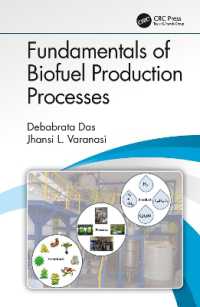Full Description
Now in its third edition, this small and accessible guide contains essential information for the safe prescribing of the most commonly used drugs in the NHS.
The Top 100 Drugs combines the best elements of a students' textbook with those of a prescribers' manual. It gives equal weight to essential information on the science of pharmacology as well as the real-world practicalities of prescribing, all in an accessible and clear format.
Written by leaders in the field of clinical pharmacology, this popular book has been fully revised and updated to include the drugs used today, including monoclonal antibodies and antiviral drugs for COVID-19. With common indications, mechanism of action, adverse effects, important interactions and a clinical tip for each drug as well as questions to test knowledge, this book is key to helping students understand everything they need to know about the drugs they are likely to use in practice.
Compact and easy to follow - can be carried around on the wards
Logically ordered - offers multiple ways to find the drug you are looking for
A Clinical Tip for each drug, drawn from the authors' experience
100 self-assessment questions to encourage integration and revision of knowledge and understanding
Contents
Drugs listed by specialty area
Drugs listed by indication
The top 100 drugs
Emergency drugs
Fluids
Self assessment and knowledge integration
Answers and explanations








